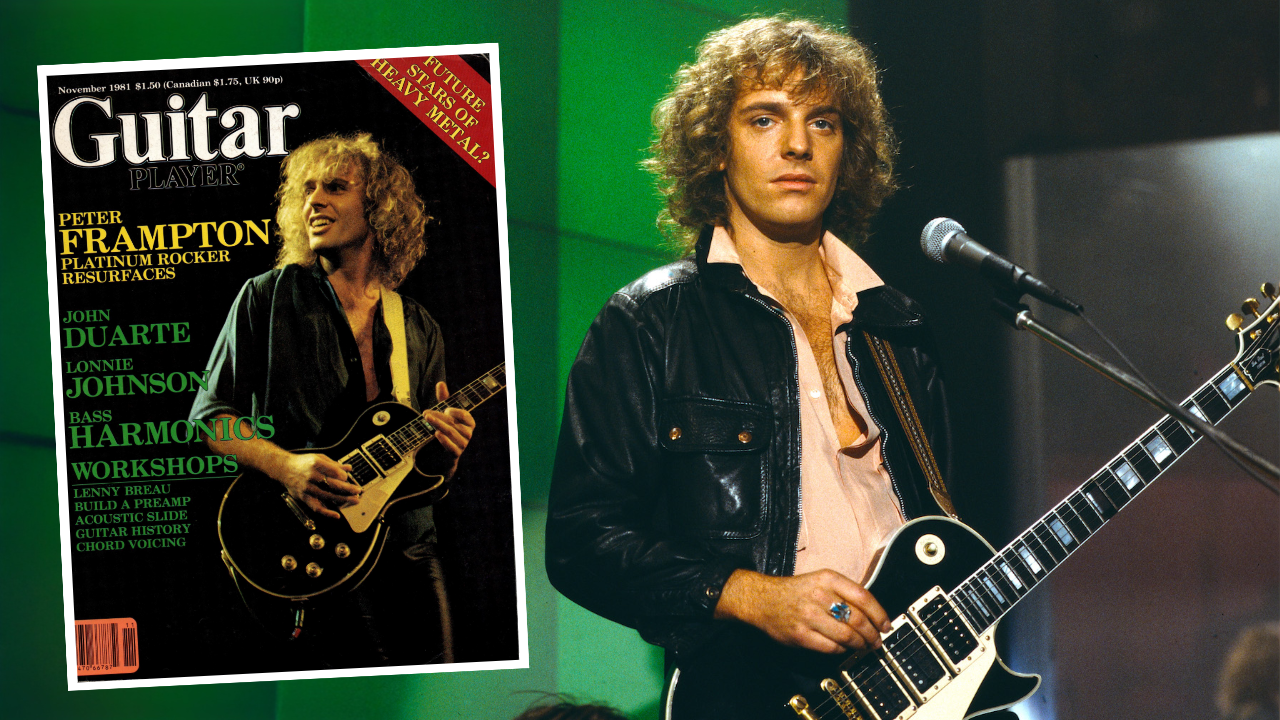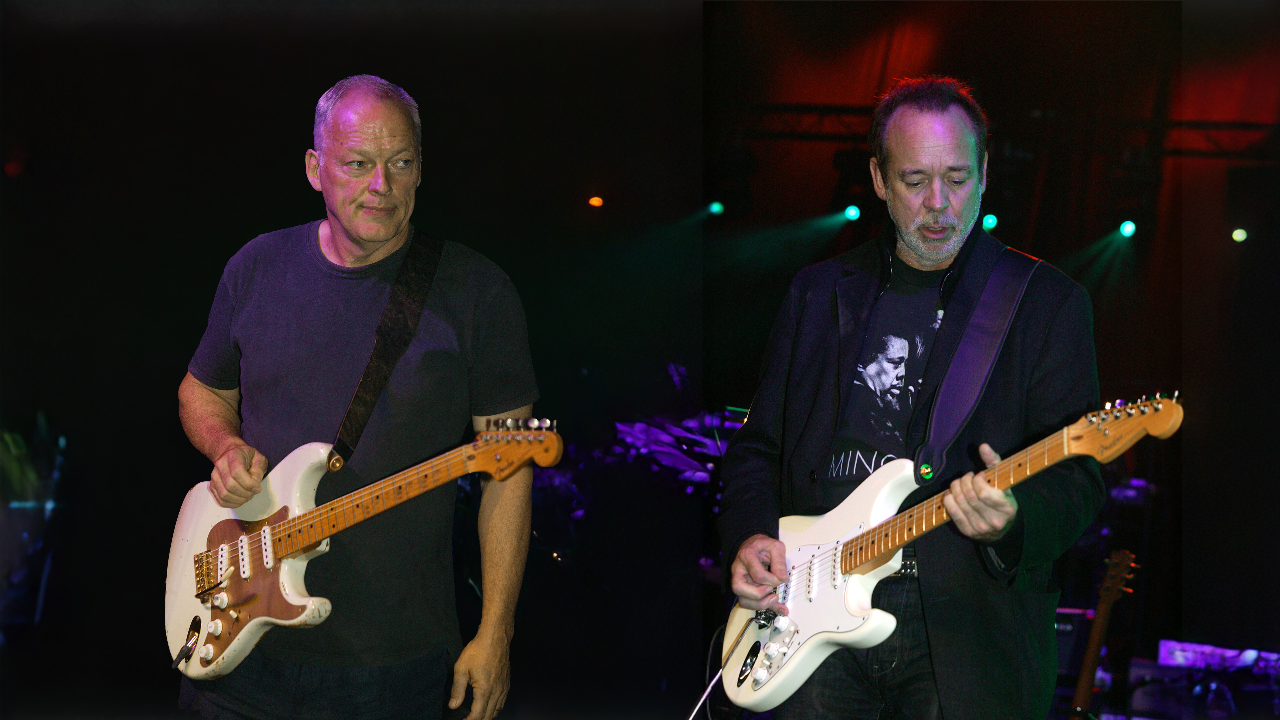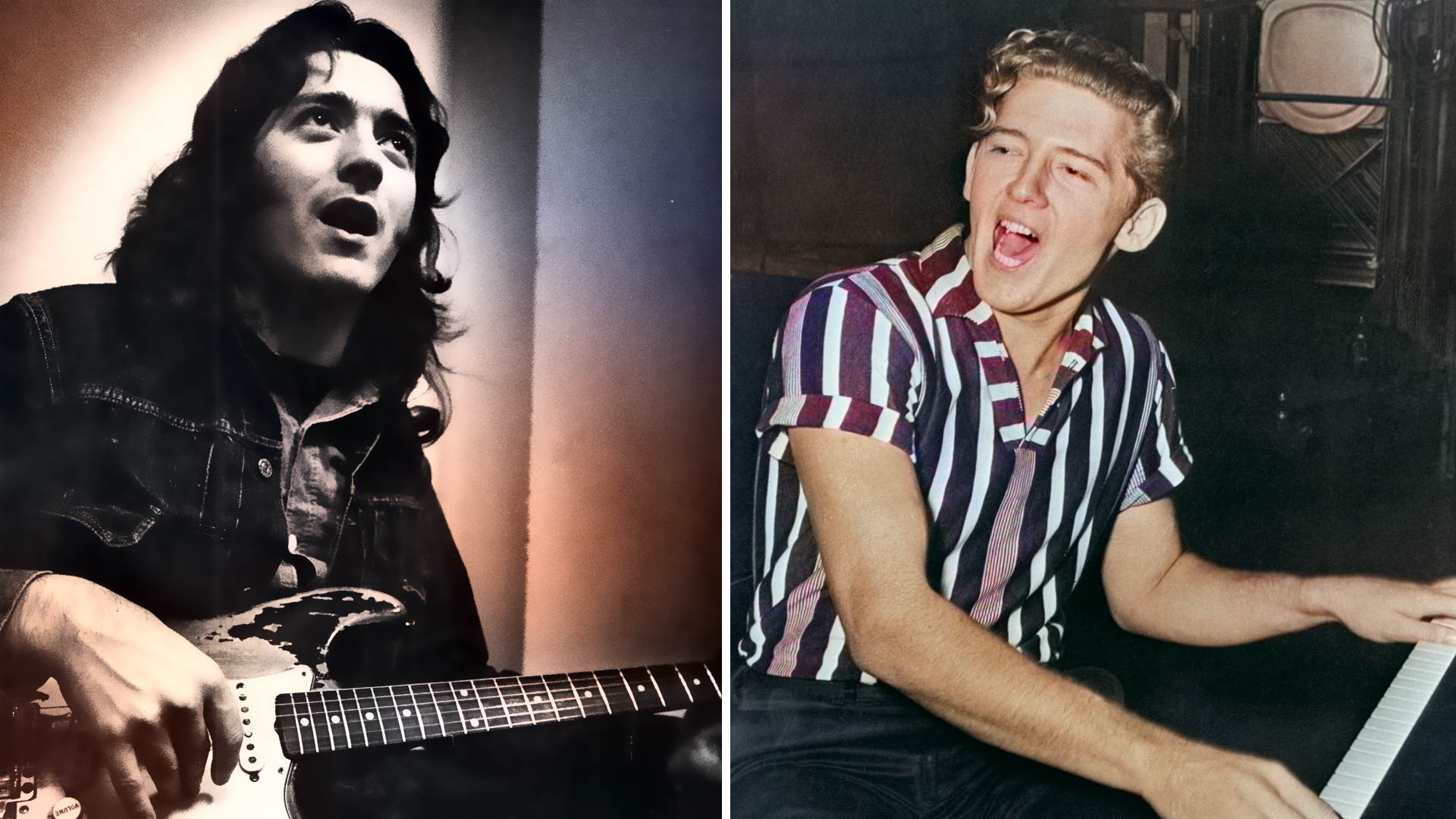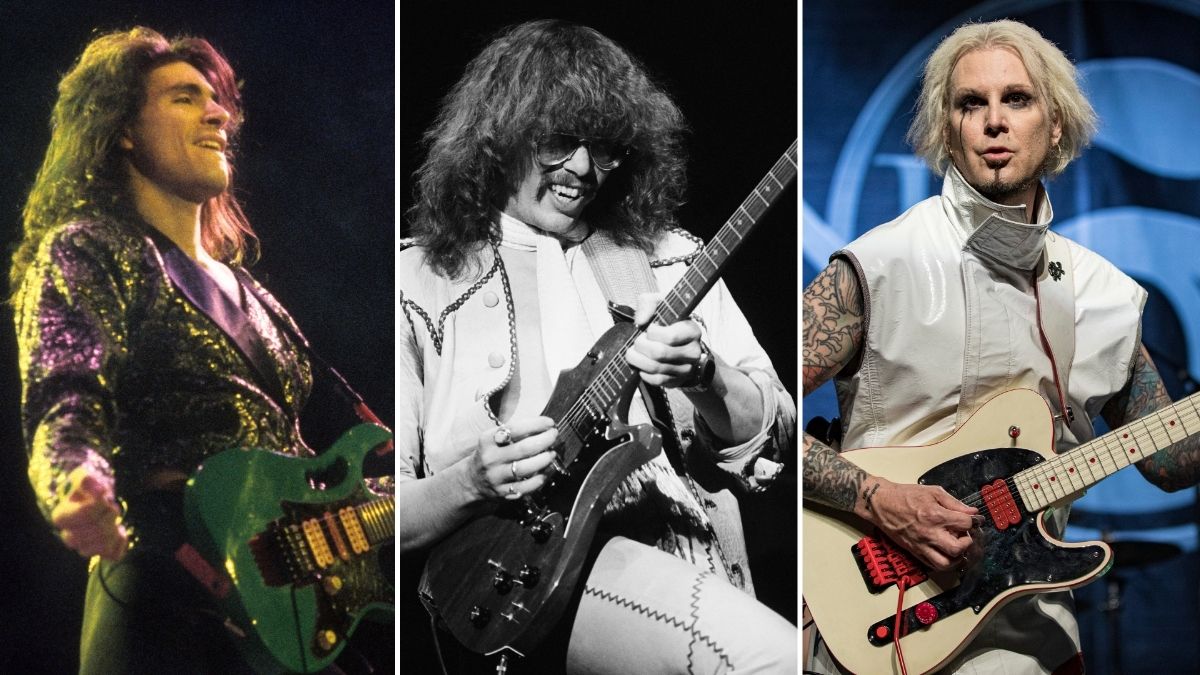“I’m going, ‘This guy is better at what I do than I am!' ” Eddie Van Halen on the one guitarist he said out–Van Halened him
Ed's impressions of Steve Vai weren't entirely positive, and he wondered if others saw him the same way

“Of course, I could never play like him. I never tried. Only an idiot competes with Eddie Van Halen.”
So said Steve Vai to Rolling Stone in 2020, as he reflected on his friendship with Eddie. Vai certainly spoke from wisdom — after all, he was David Lee Roth’s guitarist after Roth left Van Halen. He knew what would be expected of him and that he needed to cut his own path to avoid being compared to and overshadowed by the great Eddie Van Halen.
“When I joined David Lee Roth’s band, it was great opportunity for me to play such well-constructed rock songs,” Vai said. “Of course, nobody can play them like Edward, but you do your best.”
Eddie was certainly aware of the guitarist who had taken his place alongside Roth. And while Ed knew his own talents were immense, he remained humble and believed other guitarists had something to teach him. Allan Holdsworth for example: Ed was a huge fan of the guitar giant and did everything he could to help him land a recording contract. With Ed, there was never competition, just a desire to play guitar and keep getting better.
So he kept his eye on Vai and was pleasantly surprised at what he heard. Unlike the numerous EVH clones, Vai combined his limits-stretching electric guitar techniques with lyrical melodies. Joe Satriani — who stepped into Ed's shoes on last year's Best of All Worlds tour — might impress you with his bluesy fusion, and Yngwie Malmsteen with his neoclassical chops. But Vai combined an almost operatic beauty with the sort of avant-garde eccentricities of his former employer, Frank Zappa.
And when Eddie heard Vai apply his magic to his own songs in Roth’s band, he was duly impressed.
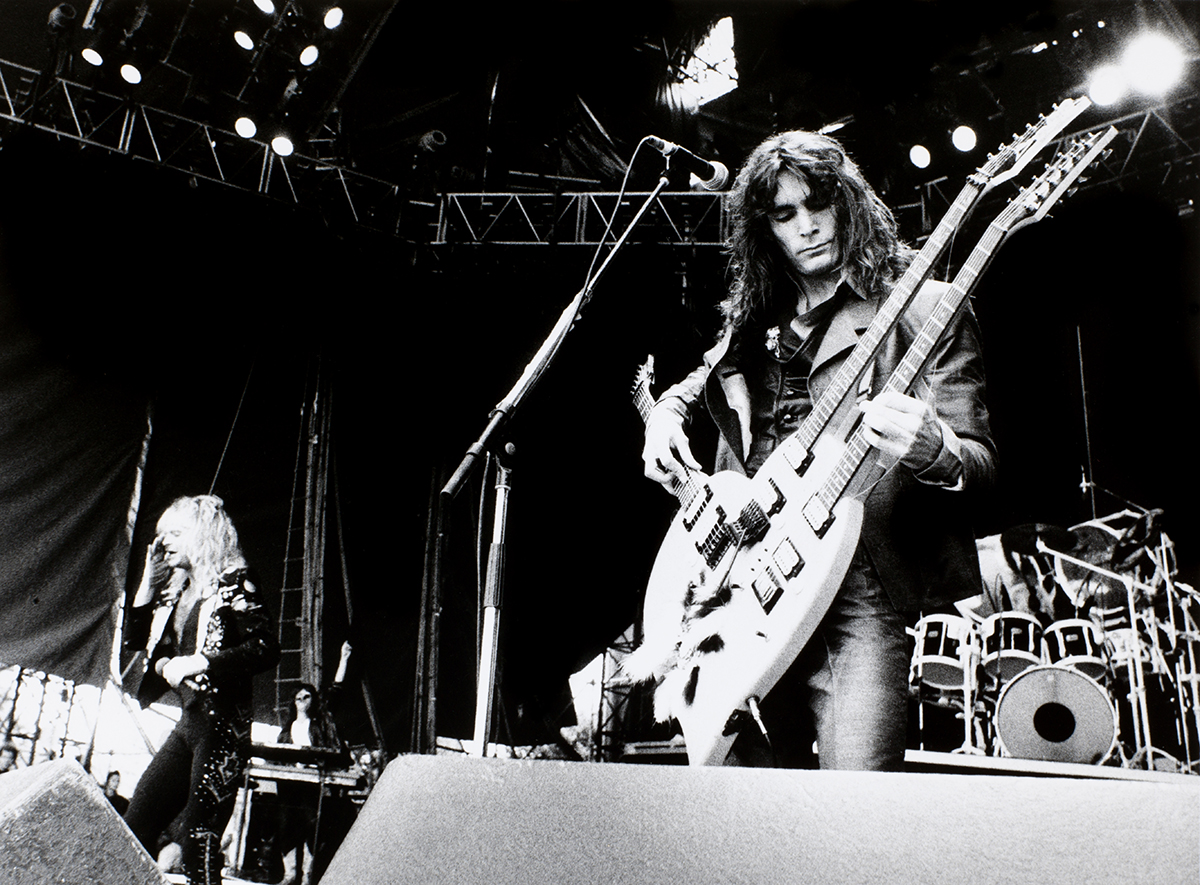
“I’m going, ‘This guy is better at what I do than I am’, you know?” Eddie told interview Shaun Baxter in 1995.
“But,” Ed added, “ he lacked the vibe… the feel. He was technically very proficient but stiff. It always made me feel bad in a way. Because it made me feel like, ‘Wow, is that how people perceive me?’ ”
Vai stayed with Roth from 1985 through 1989, during which time he performed on the singer’s albums Eat ‘Em and Smile and Skyscraper. Once he was out, Ed felt it was safe to give him a call.
“The day after I left David Lee Roth’s band — I don’t know how Edward found out — but he called me,” Vai told Rolling Stone. “That was the start of a nice relationship and friendship.”
Vai recalled that they hung out frequently over a six-month period, during which he visited Ed’s 5150 Studios and was treated to private listening sessions of his work tapes. “He played me stuff that was never released,” Vai recalled. “I said, ‘Why don’t you make a solo record?’ And he always felt that the Van Halen records were his solo records.
"But this stuff he was playing me was really quite nice. It was all the things we loved about the way he played.”
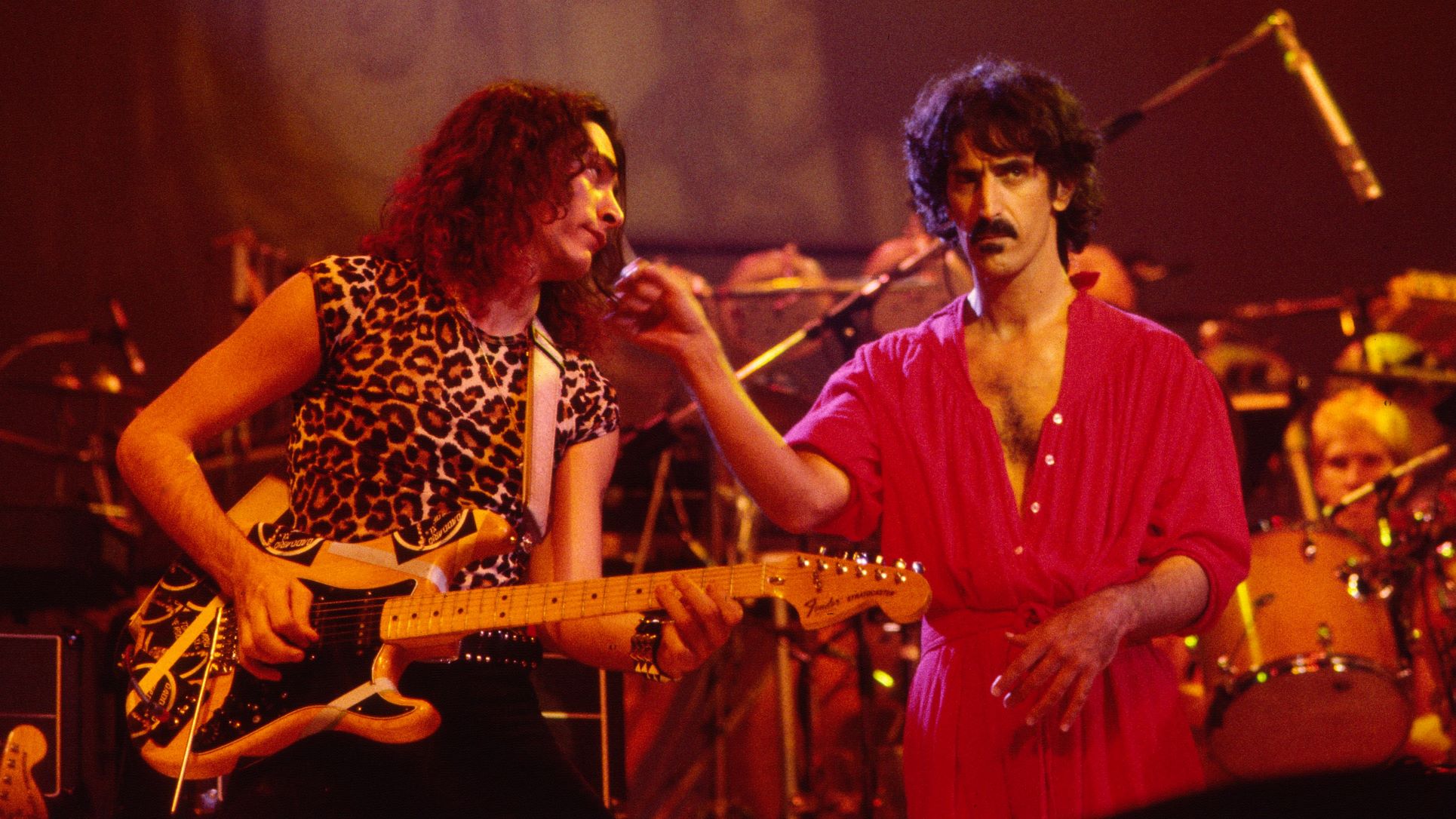
While Ed considered Vai the one guitarist who out–Van Halened him, Vai believes Ed was a rock and roll game changer with only one peer.
“If I had to use my intuition,” he said, “it’s Hendrix, it’s Van Halen, in rock guitar. So many great guitarists came along and contributed, but those guys just did something for us that reshaped not just the way we played instruments, but the way we write the music, the way we dress, and the way we act onstage. It goes really deep. So I firmly feel that he was one of those monoliths.”
Vai certainly has his own share of fans who consider him a game changer. Tosin Abasi recently spoke of working 16 hours a day in a salmon processing factory in Alaska to buy his Steve Vai signature guitar.
For those who want to channel some of Steve's guitar mojo, his three top guitar tips will prove worthwhile.
Get The Pick Newsletter
All the latest guitar news, interviews, lessons, reviews, deals and more, direct to your inbox!
Christopher Scapelliti is editor-in-chief of GuitarPlayer.com and the former editor of Guitar Player, the world’s longest-running guitar magazine, founded in 1967. In his extensive career, he has authored in-depth interviews with such guitarists as Pete Townshend, Slash, Billy Corgan, Jack White, Elvis Costello and Todd Rundgren, and audio professionals including Beatles engineers Geoff Emerick and Ken Scott. He is the co-author of Guitar Aficionado: The Collections: The Most Famous, Rare, and Valuable Guitars in the World, a founding editor of Guitar Aficionado magazine, and a former editor with Guitar World, Guitar for the Practicing Musician and Maximum Guitar. Apart from guitars, he maintains a collection of more than 30 vintage analog synthesizers.

